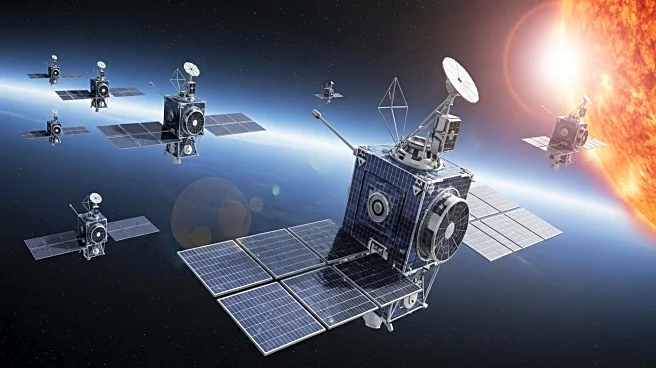What's Happening?
A proposed fleet of spacecraft, known as Space Weather Investigation Frontier (SWIFT), aims to improve space weather predictions by detecting 'space tornadoes' during solar storms. The fleet would consist of four spacecraft, including one with a large solar sail, to monitor solar activity and provide faster warnings. This initiative seeks to protect satellites and power infrastructure from solar eruptions. The proposal, funded by NASA and the National Science Foundation, highlights the need for advanced monitoring systems as the sun enters a highly active phase.
Why It's Important?
The SWIFT spacecraft proposal is crucial for enhancing space weather prediction capabilities, which are vital for protecting technological infrastructure on Earth. Solar storms can disrupt satellites and power grids, leading to significant economic and societal impacts. By providing faster and more accurate warnings, the SWIFT fleet could mitigate these risks. This initiative reflects the growing importance of space weather monitoring in safeguarding critical systems and underscores the need for continued investment in space research and technology.
What's Next?
The SWIFT proposal is still in the conceptual stage, with no formal design or funding secured. However, the study outlines potential operational strategies and emphasizes the importance of developing such systems. Future steps may involve securing funding, designing the spacecraft, and planning for launch. Stakeholders, including government agencies and private companies, may play a role in advancing this initiative. The success of precursor projects, like the Solar Cruiser, will be pivotal in realizing the SWIFT fleet's potential.










